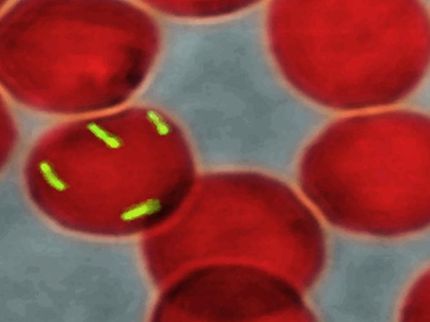MedImmune and Cerus to Present Data on Novel Vaccine Technology's Potential to Help Treat and Prevent Cancers
Advertisement
Gaitersburg. MedImmune, Inc. and Cerus Corporation announced preclinical results demonstrating the effectiveness of a novel therapeutic vaccine technology in suppressing the growth of certain tumors. These results will be presented at the 95th Annual Meeting of the American Association for Cancer Research (AACR). The associated AACR poster is entitled "Recombinant Listeria monocytogenes-Based Immunotherapy Targeting the Receptor Tyrosine Kinase EphA2."
"Previous research has indicated that we may be able to promote selective destruction of tumor cells while minimizing the damage to normal cells using EphA2 antibodies," said Peter Kiener, D.Phil., vice president, research at MedImmune. "These new data reveal that we also may one day apply new bacteria-mediated strategies for treating or preventing the many cancers that express the EphA2 protein, including breast and colon cancer."
To evaluate the effects of a Listeria-mediated vaccine technology, MedImmune and Cerus scientists implanted mice with tumors and then treated them with Listeria strains that had been genetically engineered to trigger an immune response directed at the EphA2 protein. Protective immunization with Listeria-huEphA2 significantly suppressed tumor growth in this study and prolonged survival for treated mice. Importantly, 80 percent of the Listeria- huEphA2-treated mice survived for greater than 43 days following tumor implantation whereas untreated controls had a median survival time of approximately 20 days.
"This research demonstrates the potential to develop potent therapeutic vaccines utilizing our proprietary Listeria vaccine platform in combination with cancer antigens such as EphA2," said Stephen T. Isaacs, president and chief executive officer, Cerus Corporation. "Our vaccine platform is designed to encourage the stimulation of the patient's immune system to selectively recognize and destroy tumor cells expressing the targeted antigen."
EphA2 is a protein overexpressed by many different types of human cancers, including melanoma (skin cancer), and breast, lung, prostate and colon cancers. The highest levels of EphA2 have been found on the most aggressive cancer cells, which is consistent with evidence linking EphA2 with clinical features of metastasis. Research to date indicates that EphA2 functions differently on malignant cells than it does on normal cells, and that these differences may help faci
Other news from the department business & finance
Most read news
More news from our other portals
See the theme worlds for related content
Topic world Antibodies
Antibodies are specialized molecules of our immune system that can specifically recognize and neutralize pathogens or foreign substances. Antibody research in biotech and pharma has recognized this natural defense potential and is working intensively to make it therapeutically useful. From monoclonal antibodies used against cancer or autoimmune diseases to antibody-drug conjugates that specifically transport drugs to disease cells - the possibilities are enormous

Topic world Antibodies
Antibodies are specialized molecules of our immune system that can specifically recognize and neutralize pathogens or foreign substances. Antibody research in biotech and pharma has recognized this natural defense potential and is working intensively to make it therapeutically useful. From monoclonal antibodies used against cancer or autoimmune diseases to antibody-drug conjugates that specifically transport drugs to disease cells - the possibilities are enormous




















































